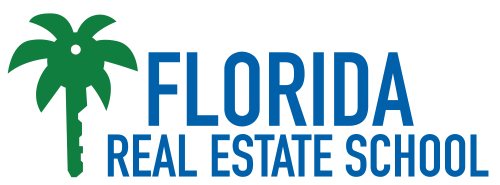Choosing the Best Real Estate Course in Florida: A Comprehensive Guide
Embarking on a real estate career journey? Navigating the sea of real estate courses can be overwhelming. This guide will equip you with essential insights to make an informed choice that aligns with your aspirations.
Introduction:
Venturing into the realm of real estate offers exciting prospects, but the path begins with a critical decision: selecting the perfect real estate course. Amidst the multitude of options available, ensuring a well-informed decision is crucial. This guide delves into the pivotal factors to consider when choosing the best-suited real estate course for your unique journey.
1. Clarify Your Objectives: Define Your Real Estate Destination
Embarking on the journey towards a successful real estate career demands a clear sense of direction. Imagine the real estate landscape as a vast, uncharted territory, and your career goals as the compass guiding your expedition. This step is akin to plotting your course before setting sail.
Are you drawn to the fast-paced world of real estate agents, connecting buyers with their dream homes? Perhaps your talents lean towards managing properties with finesse, making you an ideal property manager. On the other hand, if you have a penchant for evaluating the worth of properties, the role of an appraiser might be your calling. And let's not forget the allure of investing, where understanding market trends and opportunities can lead to lucrative ventures.
By intimately understanding your aspirations within the real estate realm, you transform your choice of course from a mere selection into a strategic move that propels you towards your specific destination. Every career avenue requires its own unique skill set, and this clarity ensures you're equipped with the right tools for your chosen path.
So, before diving into the sea of real estate courses, take a moment to delve deep into your career ambitions. Envision yourself thriving in your chosen role, and let that vision guide your choice of education. Just as a ship needs a destination, your real estate journey begins with a clear objective that will guide you toward success in this dynamic industry.
2. Embrace Your Learning Style: Tailoring Education to Your Unique Approach
In the realm of real estate education, one size doesn't fit all. Just as properties possess distinct characteristics, so do your learning preferences. Imagine education as a canvas, and your learning style as the vibrant strokes that define your masterpiece.
Do you flourish in the ambiance of interactive classroom settings, where lively discussions and immediate feedback fuel your understanding? This environment fosters collaboration, offering the opportunity to learn not only from your instructors but also from fellow students sharing their insights.
Alternatively, does the idea of a virtual classroom, with its flexibility and adaptability, align better with your rhythm? Online learning offers the advantage of pacing your education according to your schedule, allowing you to balance other commitments without compromising your growth.
Understanding your learning style is akin to discovering a compass that guides you through the maze of educational options. It ensures that the path you embark upon resonates with your inherent preferences, making the journey not only informative but also engaging and enjoyable.
So, reflect upon your learning experiences—what has invigorated you in the past? Do you thrive on hands-on activities, engaging discussions, or independent exploration? As you select your real estate course, keep in mind that the canvas of education is vast and diverse. By embracing your unique learning style, you paint a portrait of success that's tailored to your brushstrokes. Your journey through the world of real estate education becomes an experience that aligns with your natural inclinations, fostering a fulfilling and effective learning process.
3. Explore Course Content: Navigating the Rich Landscape of Knowledge
Selecting a real estate course is akin to choosing a compass that guides you through the intricate pathways of the industry. Imagine this compass not only directing you but also illuminating the diverse facets of real estate with each step you take. This illumination is none other than the course content—a treasure trove of knowledge that can shape your expertise.
As you embark on this educational journey, consider the course content as your roadmap, charting your course across the vast expanse of real estate intricacies. The richness of this content can determine whether you'll navigate with confidence or stumble through uncertainty.
Pertinent industry trends, akin to the changing landscapes of properties, should be a core component of the curriculum. An awareness of the latest market shifts and developments equips you to adapt and thrive in dynamic real estate environments.
Yet, trends alone don't suffice. Legal frameworks and regulations are the solid foundation upon which real estate transactions stand. A course should delve deep into these aspects, ensuring you're well-versed in the legal intricacies that govern this field.
Negotiation, a skill akin to finding common ground in a diverse landscape, is another cornerstone. Mastery in this art empowers you to secure favorable deals and build lasting relationships with clients and counterparts.
Strategic marketing, resembling a compass that guides potential buyers and sellers to your expertise, is a must-have skill. Understanding how to position properties effectively and convey their value is essential to thriving in the competitive real estate arena.
As you explore different courses, consider them as unique parcels of knowledge, each contributing to your toolkit. The right course content should be a mosaic of industry trends, legal acumen, negotiation finesse, and marketing prowess—a comprehensive package that arms you for success.
So, venture forth into the realm of course content with an exploratory spirit. Imagine each lesson as a landscape waiting to be uncovered, each module a path leading to new insights. By immersing yourself in rich, diverse content, you not only broaden your knowledge but also forge a path towards expertise in the dynamic world of real estate.
4. Investigate Instructors' Expertise: Guided by Knowledgeable Mentors
Picture your real estate education as a vessel navigating uncharted waters. The instructor stands at the helm, steering you through the ebbs and flows of knowledge. Their expertise is the compass that ensures you stay on course, avoiding pitfalls and discovering new horizons.
In selecting a course, don't underestimate the instructor's role. Seek out mentors who are more than just educators—they are practitioners who have traversed the real estate landscape themselves. Their firsthand experience adds a layer of depth to your learning journey, as they infuse lessons with real-world anecdotes that breathe life into theoretical concepts.
A successful track record in education complements their industry experience. Effective teaching demands the ability to convey complex ideas in a digestible manner, fostering an environment where students thrive. Investigate the instructor's approach—do they encourage active engagement and critical thinking? Do they create a supportive atmosphere that nurtures growth?
Reviews from former students offer valuable glimpses into an instructor's teaching efficacy. These insights are akin to whispers from explorers who have ventured into the same terrain you're about to explore. Take note of their experiences: Did the instructor inspire a deeper understanding? Did they provide practical insights that proved valuable beyond the classroom?
In the end, your journey through the real estate education landscape is guided by these knowledgeable mentors. The instructor's expertise becomes a lighthouse, casting light on the intricacies of the industry and helping you navigate the educational voyage. By investing time in investigating their credentials and learning methodologies, you're not just selecting a course—you're forging a partnership with a mentor who will guide you towards mastery in the realm of real estate.
5. Validate Accreditation: Unlocking Career Doors
In the dynamic world of real estate, credibility speaks volumes. Choosing an accredited course isn't just a checkbox—it's a strategic move that opens doors to greater career potential. Opt for courses that bear the seal of approval from industry stalwarts and respected employers.
Accreditation serves as a stamp of quality, validating that the course aligns with industry standards and equips you with essential skills. Industry bodies like the National Association of Realtors (NAR) and local licensing boards have stringent criteria for endorsing courses, ensuring that you receive education that's not only comprehensive but also relevant.
By prioritizing accredited programs, you're not just investing in your education; you're investing in your future. This recognition isn't just a badge—it's a key that unlocks opportunities, setting you on a path where your expertise is not only recognized but also valued by the industry at large.
6. Assess Value Over Cost: A Calculated Investment
As you navigate the array of real estate courses, consider your choice as an investment—a strategic step towards your career goals. While cost plays a role, the true measure of a course's worth lies in the value it brings to your growth.
Rather than fixating solely on the price tag, weigh the comprehensive benefits on offer. Look beyond the surface and evaluate the caliber of content, the expertise of instructors, and the weight of recognized accreditation. A course that offers an enriching curriculum, taught by industry practitioners, and endorsed by respected bodies carries an inherent value that transcends its cost.
Remember, this investment is not just in your education but in your future. By focusing on value, you're ensuring that every dollar spent yields not just a certificate but a set of skills that will distinguish you in a competitive market. This mindful approach safeguards you against making decisions based solely on cost and positions you to reap substantial returns on your educational investment.
7. Learn from Others: Tapping into Collective Insights
Embarking on your real estate educational journey need not be a solitary endeavor. Imagine the wealth of wisdom shared by those who have navigated this path before you as a treasure trove waiting to be unlocked. The experiences of students and seasoned real estate professionals hold valuable insights that can shape your decision.
Reviews and testimonials serve as windows into the course experience. They offer a candid look at what awaits you, shedding light on the highs and potential challenges you might encounter. These firsthand accounts provide a glimpse into the real-world applicability of the education you're considering.
By engaging with these collective insights, you're gaining a holistic perspective on the course's potential impact on your career. It's akin to standing at a crossroads and seeking guidance from those who have journeyed each path before you. Their experiences offer signposts, helping you navigate towards an educational choice that aligns with your aspirations and equips you with the tools to excel in the world of real estate.
Conclusion:
The selection of the optimal real estate course lays the foundation for your journey in this dynamic field. By factoring in your objectives, learning style, course content, instructor expertise, accreditation, value proposition, and collective insights, you're poised to make an educated decision that will shape your trajectory toward success.
Remember, your chosen education serves as a compass guiding you through the intricate terrain of the real estate landscape.

